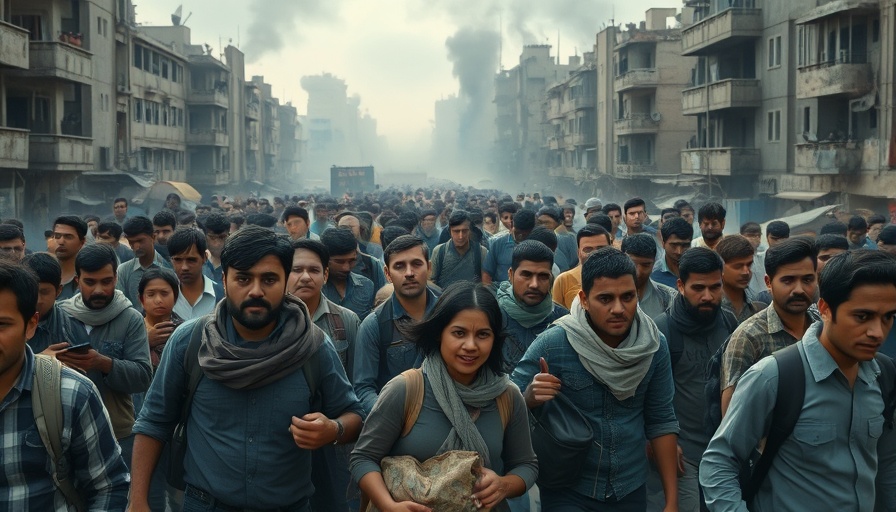
New Hope for Peace in Gaza: What’s Happening?
Recent discussions surrounding a potential ceasefire in Gaza have raised hopes for long-sought peace amid ongoing tensions in the region. According to sources from Hamas reported by the Saudi newspaper Asharq Al-Awsat, a new push for negotiations may gain momentum over the next two weeks, despite recent setbacks. The group is reportedly committed to engaging with multiple mediators to create pathways toward a resolution that could change the current state of affairs in Gaza.
The Human Cost of Conflict
The situation in Gaza has lasted for decades, and while political discussions are promising, the human suffering continues. Families in the region contend with loss and uncertainty due to the ongoing conflict, which disproportionately impacts children. According to UNICEF, over half of Gaza's population is under the age of 18, underscoring the urgent need for a peaceful resolution that secures the future of the youth, who will grow up amid an environment steeped in tension and strife.
Historical Context: Ceasefires and Treaties
Throughout history, numerous ceasefires have been attempted between Hamas and Israel, each time met with a mix of hope and skepticism. Previous truces have come and gone, often unraveling due to a lack of trust and mutual understanding. A deeper exploration into the intricacies of these negotiations is crucial, as peace often requires more than just agreements; it necessitates empathy and a genuine commitment from all parties involved.
The Role of Mediators in the Peace Process
The current negotiations are said to involve several mediators, which typically include regional powers like Egypt, Qatar, and international bodies that have a vested interest in Middle Eastern stability. These mediators play a critical role in bridging divides and facilitating dialogue, but their success often relies heavily on the willingness of conflicting parties to engage sincerely. Understanding their influence in the process can shed light on potential pathways toward a more enduring peace.
The Importance of Global Awareness and Advocacy
For Christians and social justice advocates worldwide, staying informed about events in Gaza is not just a matter of global awareness but also an imperative for advocacy. Historically, humanitarian agencies and religious communities have organized responses aimed at alleviating the suffering of civilians caught in the crossfire. By promoting awareness and advocating for a ceasefire that genuinely prioritizes the well-being of Gaza’s citizens, these groups can contribute to redefining how global communities address and resolve conflict.
Opportunities for Interfaith Dialogue and Collaboration
Amidst the potential for change, there is an opportunity for interfaith dialogue to flourish, as individuals and communities can come together in pursuit of peace. By cultivating relationships across differing faiths, Christians and Muslims alike can work collectively towards understanding and reconciliation. Engaging in conversations centered around mutual respect can lead to a transformative approach to societal healing.
In conclusion, recent efforts toward a ceasefire in Gaza may signal a new potential for peace that many have longed for. However, the journey toward a stable and hopeful future is complex, requiring continuous dialogue, compassion, and advocacy from individuals and organizations around the world. As Christians and advocates for change, we must remain informed and engaged, finding ways to offer support and promote efforts towards peace in Gaza.
Join the conversation and explore how you can support peace-building efforts in Gaza and more broadly in your community.
 Add Row
Add Row  Add
Add 








Write A Comment